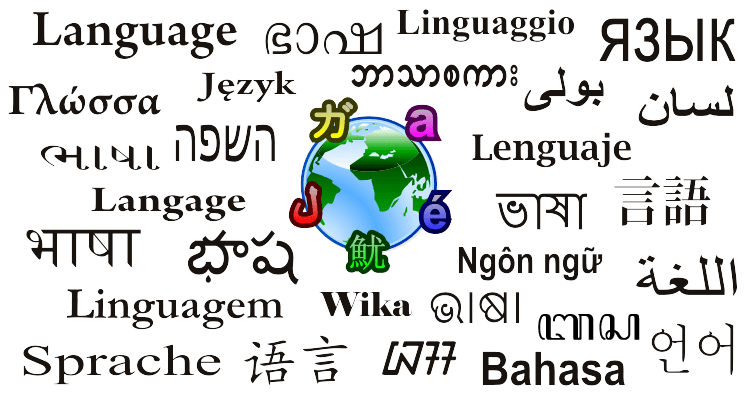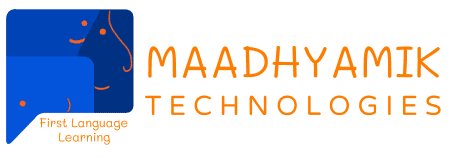Gone are the days when we would smile cheerfully and wave to a neighbourhood aunt/ uncle on our way to school or play cricket with our friends in a ground or a dead-end street. Buying a little snack from a old lady in the street corner just outside the school on the way back has been a privilege for the previous generations in those days.
The digital age has ensured that we are more immersed on some Social media now, communicating with some virtual acquaintance rather than playing with physical friends. Sometimes, we can see children and young adults carefully trying to avoid communicating/ interacting with neighbours or service providers such as a apartment security guard, a postman, neighbourhood shop owner. Awkward silences and phone gazing are the norm these days be it in apartment lifts/ elevators or in a park walkway during morning walks, instead of a friendly hello and casual small talk with a long-term neighbourhood face.
This is particularly common in children and young adults today and we believe the lack of native language proficiency of our children is a critical reason in this. They feel and live an isolated life, and have interactions with a very small circle of friends and family. While this may seem inconspicuous now, we believe that we are not preparing them to face the larger world later in their life.
In this post we argue that, a firm grasp of ones native language can benefit in their many aspects of life from cultural understanding, easier social interaction, creativity and better mental acuity and even career advancement.
Cultural and Social Connections
Acquiring fluency in your native language can facilitate a deeper connection with your cultural heritage and ancestry. It can also provide you with a greater appreciation for the complexities and subtleties of your native language. Your ancestors' language can give you a better understanding of the unique stories, beliefs, and values that have been passed down through generations.
Being able to speak and understand your own regional language not only allows you to converse with family and friends but also provides an essential window into the culture's history and its current happenings. You will be able to learn more about the customs and traditions that define the culture. This knowledge can help foster tremendous respect and appreciation for the cultural heritage of your ancestors.
This becomes even more critical now as people migrate to different country/ continent for education, job or simply better opportunities. For such, their language is still a last and vital thread of connection to their roots.
Familiarity with your native language can foster a stronger sense of belonging and connection to the wider society that has people from different walks of live or from different regions with their own dialect/ slang. It can certainly help you to have deep and more meaningful interaction with native speakers. This can lead to a range of opportunities for enriching conversations and interactions that may not have been possible otherwise.
Native language proficiency will also enable you to access information from different media, such as news papers, magazines, books, films, television, digital media and other materials. Most of the Indian languages have vast amounts of literature and other written materials in varied domains that can intrigue, excite, engage and inspire our young minds for generations to come if only our children can read and write in their native tongue.
English or any other alien language can not help you learn/ understand and appreciate your culture and with your societal interactions. Your native tongue is the key to achieve this.

Image credit: Wikimedia
Appreciation for Other Cultures/ Languages
Learning your native language is an essential part of being able to appreciate and understand other cultures fully. By understanding the language spoken in different regions/ countries, you can gain insight into their culture and lifestyle. A better understanding and appreciation of other cultures can help you develop relationships with people from different backgrounds and build bridges between communities.
One of the interesting aspects of learning your native language is discovering the connections it has to other similar languages and cultures. The connections can be i) linguistic such as shared alphabet, common words, and grammatical aspect like sentence structure or ii) cultural such as shared folk tales, literature, and social customs. For example, if your native language is Kannada, you may find that it shares many similarities with languages such as Malayalam, Tamil, and Telugu and that they all have the same sentence structure with lots of vocabulary overlap.
Being able to understand and appreciate the cultural linkages between close languages/ cultures can broaden your perspective and enrich your overall understanding. For example, you might be able learn a sister language easily because of the similarities.
Improves employability
It is often said that the ability to communicate in multiple languages gives you an advantage in the job market.
This is especially true when it comes to speaking your native language. Knowing your native language can open up new career opportunities for you, as employers seek out people who can communicate with those who may speak that language. Having a good command of your native language can also give you an edge in certain professions.
Knowing your native language can be beneficial for career advancement in fields such as translation and interpretation, as it may make you a more attractive candidate to potential employers. Additionally, being proficient in more than one language can expand your professional opportunities, particularly in the global business world, by allowing you to reach new clients and markets. Additionally, speaking your native language may make it easier for you to advance in your career. For example, if you are looking to take on a management position or other leadership role, communicating effectively with colleagues in their native language can be an invaluable asset.
In short, there are many advantages attached to being involved with your love towards your regional language. Improving employability to deepening cultural connections is an invaluable skills in today's competitive job market.
Helps improve Mental Health and Acuity
Learning your native language has many benefits for your mental and physical health. For starters, it can help improve your memory and cognitive functions. Furthermore it can improve your communication skills. It's easier to express yourself accurately when you are familiar with the nuances of your language. It can also help you connect with people from your cultural background who share the same language. Studies have also shown that speaking a native language can help increase the speed at which we process information and form connections in our brains.
Also it can benefit your mental health. It can provide a sense of comfort and belongingness and connect with others on a deeper level. In fact, organizations such as UNESCO stress on the importance of native language as a medium of education in Schools and they have found this to help in better learning and reduced learning gaps.
Conclusion
Conclusion
Learning your native language can be a fun and rewarding experience! It's an opportunity to explore your roots and deepen your connection with your culture. In the process, you will also find new ways to express yourself, understand conversations around you better, or even pick up new words and phrases.
Learning your native language is a beneficial way to deepen your understanding your own culture as well as others. Not only can it help you build relationships with people from diverse social/ economical/ educational backgrounds, but it can also enrich your life through it's own literature, and cultural heritage and provide you with greater opportunities in life.
